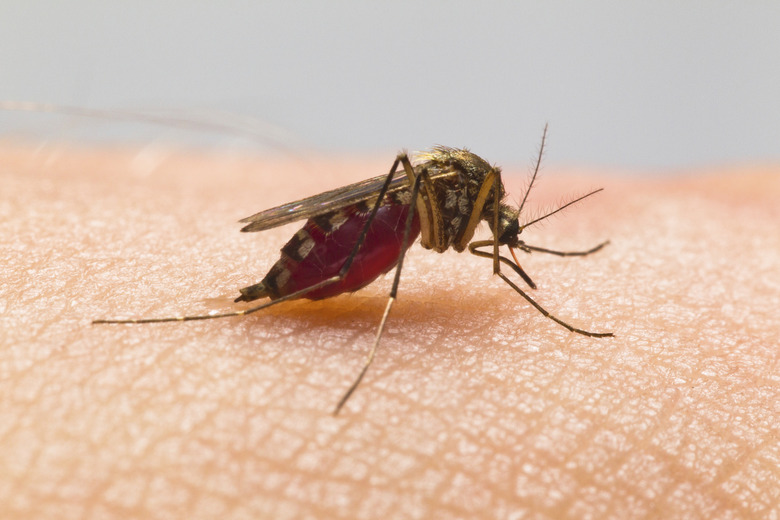Cattle Ivermectin For Dogs
Seeking an alternative source of heartworm medication, many dog owners consider using ivermectin-based medications marketed for use in cattle. Unlike formulations for dogs, these medications are available without a prescription. However, as these cattle-oriented drugs are intended for much larger animals, and feature different concentrations than those designed for dogs, they can be difficult to measure and administer safely. Additionally, some dogs are sensitive to ivermectin so such off-label usage is unwise.
Ivermectin Information
Ivermectin Information
Ivermectin is an anti-parasitic medication used in the treatment of humans and dozens of other species, including cows, cats, rodents, dogs, ferrets and reptiles. A semi-synthetic drug derived from a Japanese soil-dwelling microorganism, ivermectin belongs to a class of drugs called macrocyclic lactones, which work by paralyzing the nervous system of susceptible organisms, including many nematodes and arthropods. The drug does not typically affect mammals because the blood-brain barrier prevents the drug from reaching the central nervous system.
Ivermectin Use
Ivermectin Use
Ivermectin is helpful for treating lice, mites, myiases and intestinal worms in cattle, while veterinarians primarily use the drug to prevent heartworm in dogs. While the drug usually is administered orally or via injection when treating cows, most veterinarians prescribe a once-per-month oral tablet for dogs. Veterinarians also administer ivermectin topically to treat dogs with ear mites or mange. Ivermectin is an active ingredient in many commercial products, including Heartguard Chewables, Tri-Heart Plus and Heartguard Plus, but it also is available in generic formulations from veterinary pharmacies.
Ivermectin Sensitivity
Ivermectin Sensitivity
Some dogs possess a genetic mutation, called the MDR – 1 gene deletion, which permits ivermectin to cross the dog's blood-brain barrier. The genetic trait has been documented in 10 breeds: white German shepherds, Australian shepherds, miniature Australian shepherds, English shepherds, longhaired whippets, McNabs, old English sheepdogs, Shetland sheepdogs, silken windhounds and collies. Not all members of these breeds possess the mutation, so it is wise to have your veterinarian test your dog for the mutation before using ivermectin. Puppies younger than 6 weeks of age and dogs who have suffered head injuries also may exhibit lower tolerances for ivermectin.
Side Effects
Side Effects
Side effects of ivermectin toxicity include vomiting, drooling, staggering gait, weakness, dilated pupils, seizures, the inability to stand, blindness and coma. If you observe any of these symptoms, contact your veterinarian immediately. Unfortunately, ivermectin poisoning is irreversible, so there are relatively few things your vet can do to help your pet, besides treat the symptoms. Fortunately, excluding puppies, victims of head injuries and dogs with genetic disorders, few dogs suffer side effects from ivermectin.
Always check with your veterinarian before changing your pet's diet, medication, or physical activity routines. This information is not a substitute for a vet's opinion.
References
- The Merck Veterinary Manual: Macrocyclic Lactones
- PetMD: Parasite Drug (Ivermectin) Poisoning in Dogs
- Doctors Foster and Smith: Ivermectin
- The Canadian Veterinary Journal: Pharmacogenetics: It's Not Just About Ivermectin in Collies
- Mar Vista Animal Medical Center: Ivermectin
- Proceedings of the Japan Academy, Series B, Physical and Biological Sciences: Ivermectin, 'Wonder Drug' From Japan: The Human Use Perspective
- Parasitipedia.net: Ivermectin
- Diamondback Drugs: Ivermectin Heartworm Medication
- The Canadian Veterinary Journal: Topical (Pour-On) Ivermectin in the Treatment of Canine Scabies
